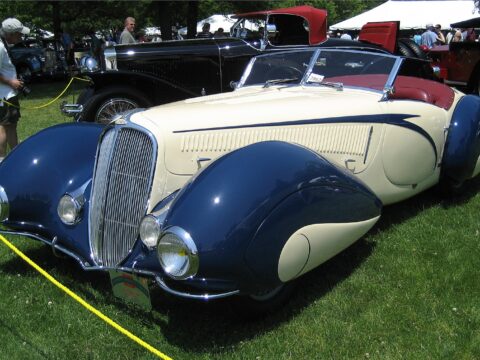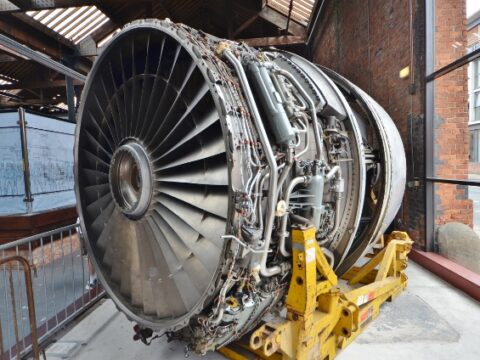When shopping for an SUV, fuel efficiency might not always be at the top of the list, but it’s an important factor to consider. While many SUVs offer great features and performance, some models come with higher fuel consumption that can hit your wallet hard at the pump. Here’s a look at 20 SUVs that don’t quite deliver when it comes to fuel efficiency.
Contents
Jeep Grand Cherokee
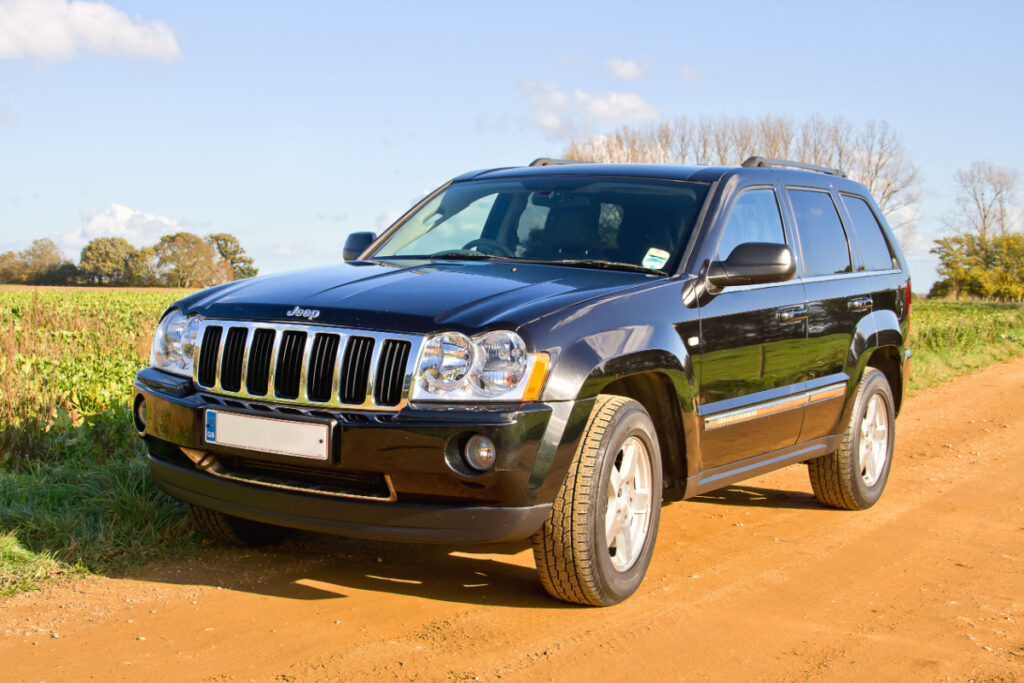
The Jeep Grand Cherokee is celebrated for its off-road prowess and rugged capability, but it lags in fuel efficiency. Its larger engine options, including the powerful 5.7-liter V8, prioritize performance over conserving gas. As a result, it averages only 18-22 mpg, which is considerably low for a midsize SUV. The heavy build and off-road focus also contribute to the higher fuel consumption.
Toyota Sequoia
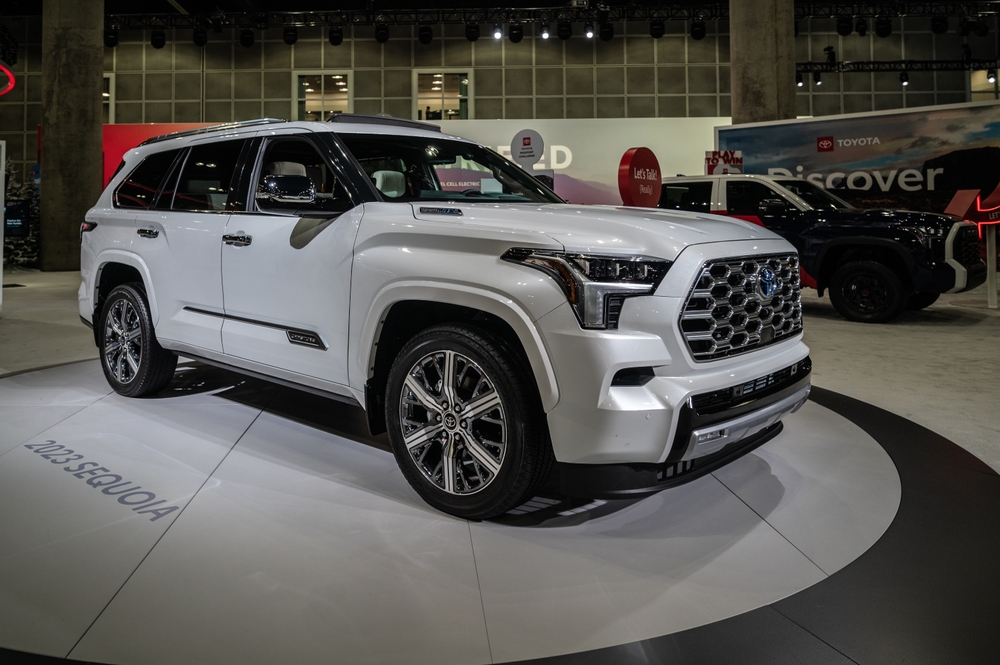
The Toyota Sequoia offers ample seating and a robust V8 engine, but its fuel economy is among the lowest in its class. This large SUV typically averages between 14-17 mpg, making it a gas guzzler. Despite its spacious interior and family-friendly features, its outdated engine technology hampers fuel efficiency. Those looking for a fuel-efficient option will likely be disappointed. While the Sequoia excels in size, it comes with a high cost at the pump.
Ford Expedition
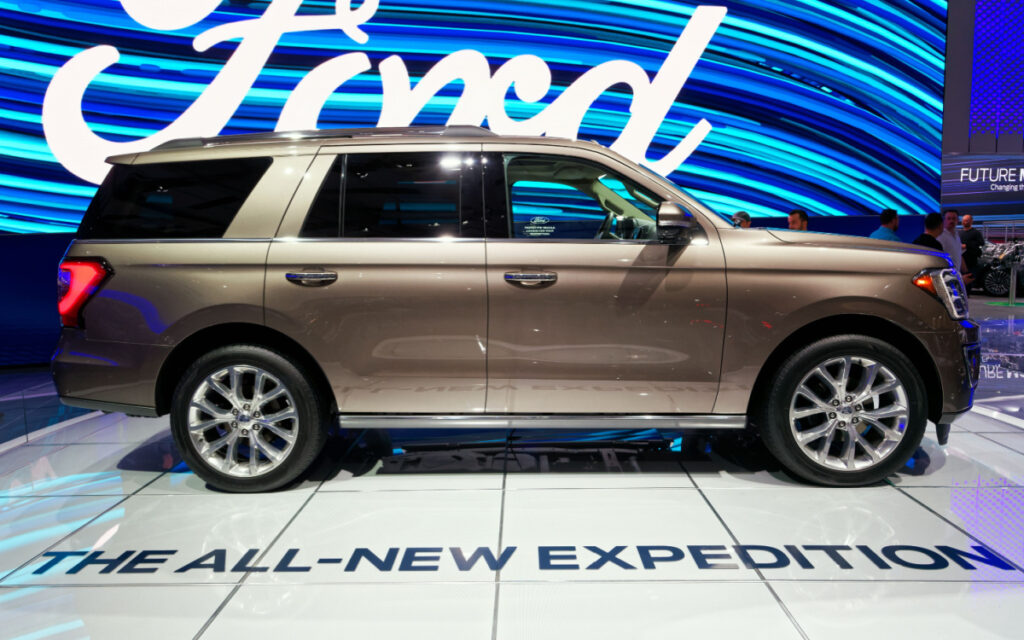
Known for its strong towing capacity, the Ford Expedition is a powerhouse, but its fuel economy leaves much to be desired. It averages just 17-23 mpg, which is low for an SUV of its size. The heavy frame and twin-turbocharged V6 engine contribute to the higher fuel consumption. While it delivers exceptional interior space and performance, it’s not the best option for those prioritizing fuel efficiency.
Chevrolet Tahoe
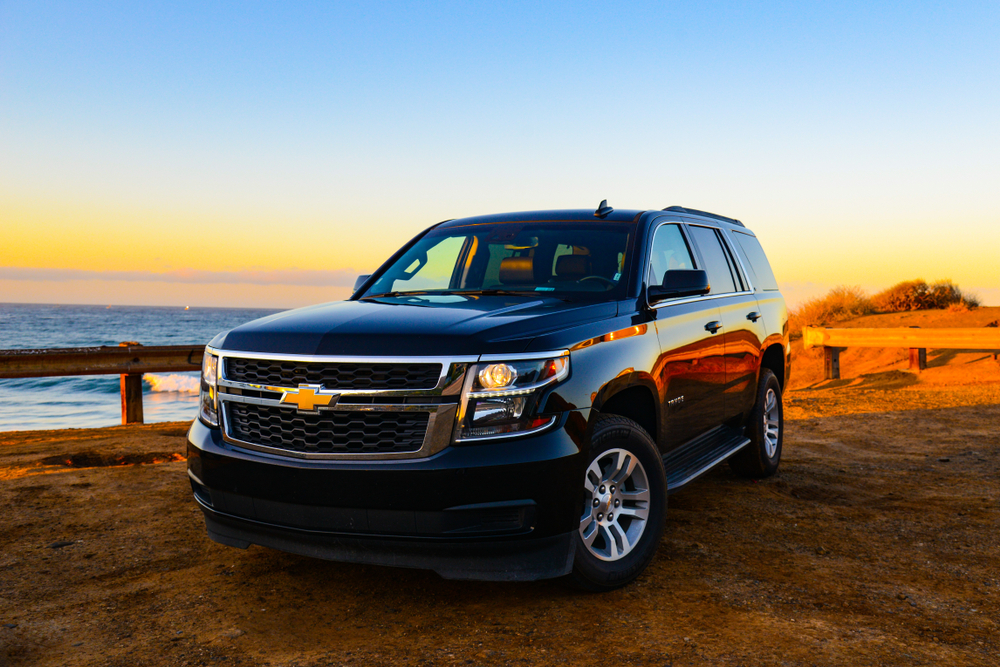
The Chevrolet Tahoe is a full-size SUV loved for its capability, but its fuel efficiency is a common complaint. Averaging 15-22 mpg, it’s far from economical in terms of fuel consumption. Its large V8 engine and heavy body contribute significantly to the high fuel usage, especially in city driving. Even though it offers generous space and towing power, the trade-off is a steep fuel bill.
Nissan Armada
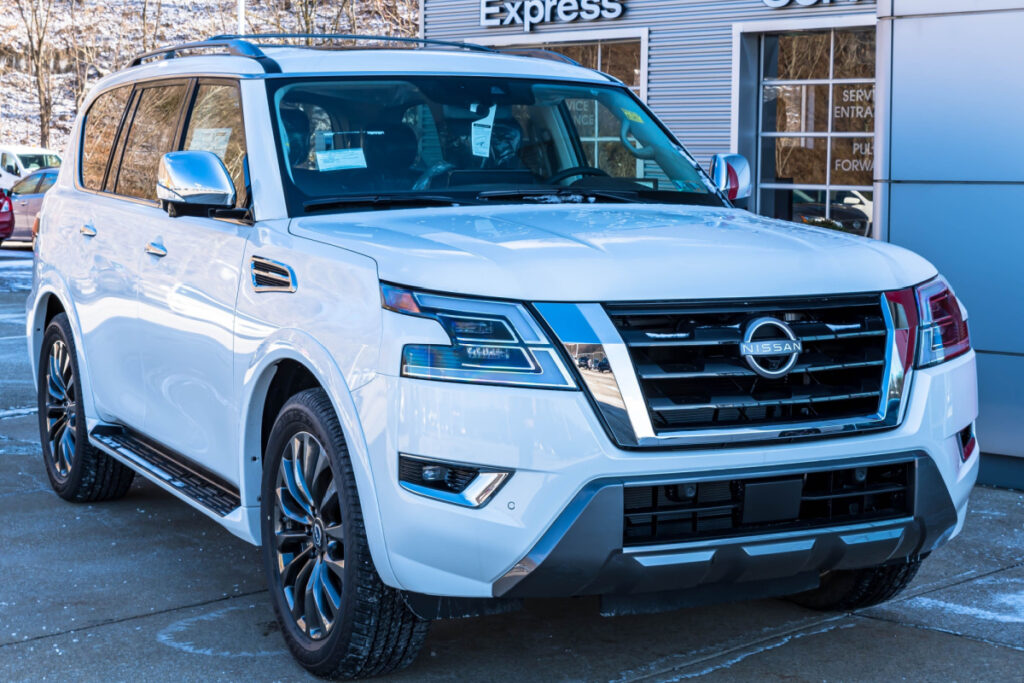
The Nissan Armada offers strong performance but fails to impress in terms of fuel economy. Averaging just 13-19 mpg, it’s one of the thirstiest SUVs on the market. Its powerful V8 engine and hefty frame make it less efficient, particularly on city roads. Despite its appeal for those needing a capable SUV, the Armada’s fuel consumption can be a dealbreaker for those concerned with efficiency. This vehicle’s power comes with a significant fuel cost.
Cadillac Escalade
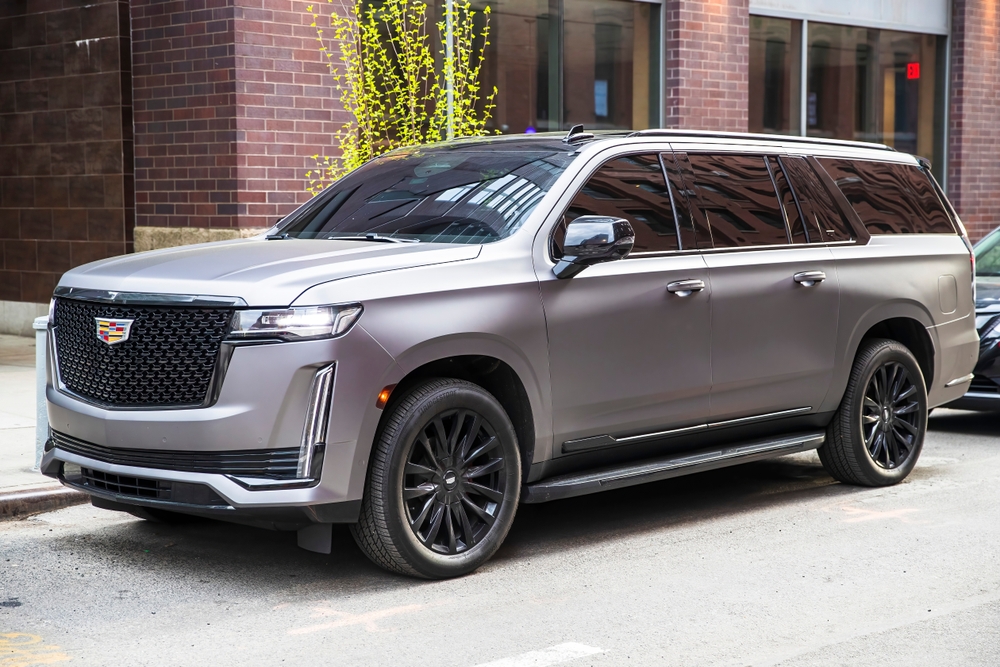
The Cadillac Escalade offers luxury and performance, but it’s notorious for being a gas guzzler. With an average fuel economy of 14-23 mpg, it’s one of the least efficient full-size SUVs. The large V8 engine and heavy, luxurious design contribute to its poor fuel consumption. While the Escalade offers a premium driving experience, frequent stops at the pump are inevitable. Buyers seeking a balance between luxury and fuel savings may need to consider other options.
Infiniti QX80
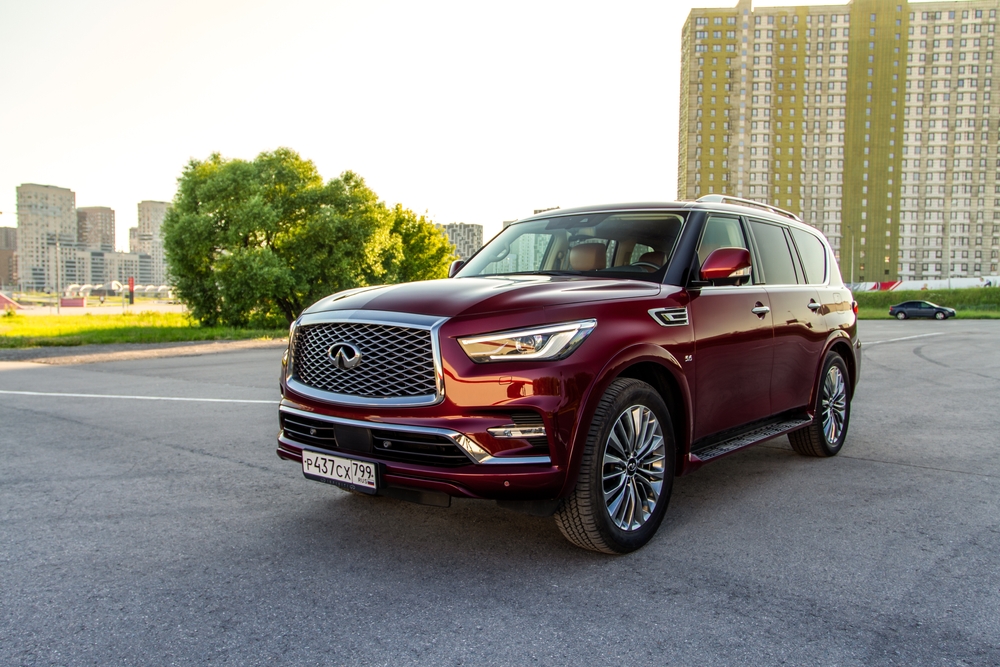
Infiniti’s QX80 is known for its opulence, yet it underperforms in fuel efficiency. Averaging around 14-20 mpg, it’s far from competitive in the luxury SUV segment. The QX80’s large frame and V8 engine are the culprits behind its poor gas mileage. For those embarking on long trips, refueling will be frequent. While its luxurious features attract many, the subpar fuel economy can be a dealbreaker.
GMC Yukon
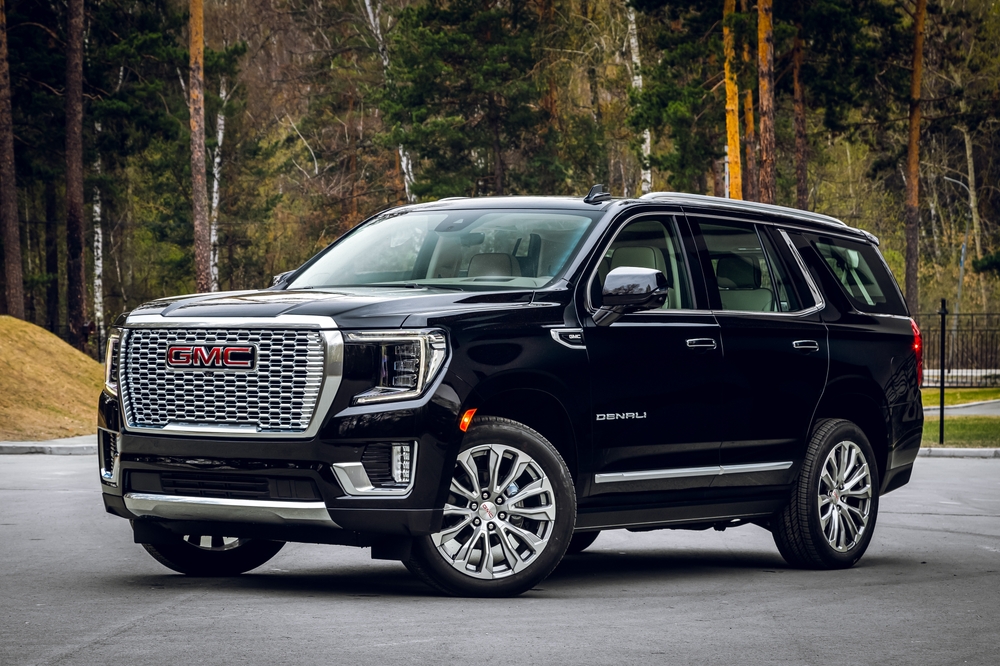
The GMC Yukon is a versatile, full-size SUV that delivers power and space but underperforms in fuel economy. Averaging between 14-23 mpg, it consumes significantly more fuel than many smaller or hybrid alternatives. Its V8 engine and large size contribute heavily to this, especially in urban driving. The Yukon’s strengths lie in its towing capacity and cargo space, but efficiency is not its strong suit. For daily commuting, this SUV might feel too thirsty.
Lexus LX 600
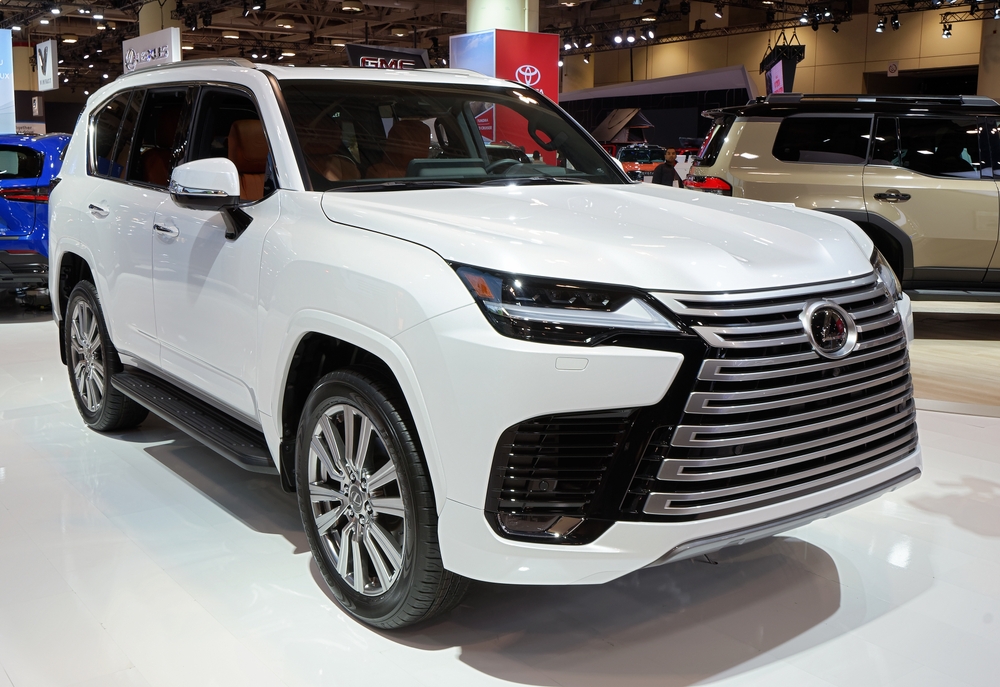
The Lexus LX 600 offers a refined driving experience with its V6 twin-turbo engine, but its fuel efficiency is underwhelming. With an average of 17-22 mpg, it doesn’t fare well in the luxury SUV segment. This vehicle’s heavy weight and focus on off-road capabilities further reduce fuel savings. Despite the luxurious features, frequent stops at the gas station are inevitable for drivers of the LX 600. For eco-conscious buyers, this SUV may not be the best fit.
Lincoln Navigator
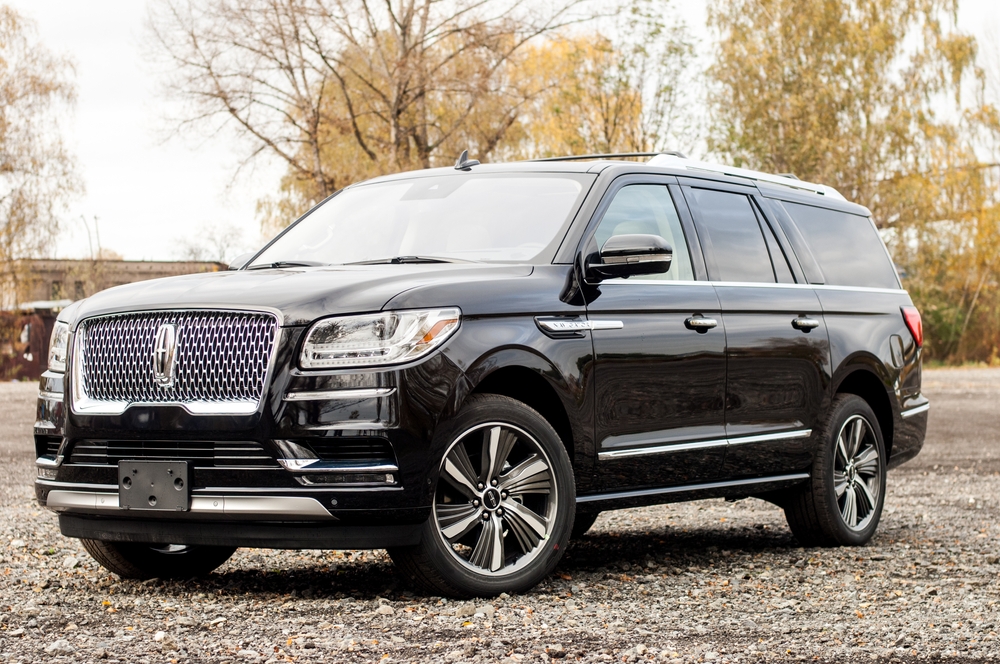
The Lincoln Navigator impresses with its luxurious interior and powerful engine, yet its fuel economy is a drawback. Averaging 16-23 mpg, it falls behind in efficiency for a large SUV. Its twin-turbocharged V6 engine provides plenty of performance, but at a cost to fuel savings. The heavy design adds to its fuel consumption, making it less appealing for those focused on efficiency. While it delivers on comfort and space, long drives could result in higher fuel expenses.
Mercedes-Benz G-Class
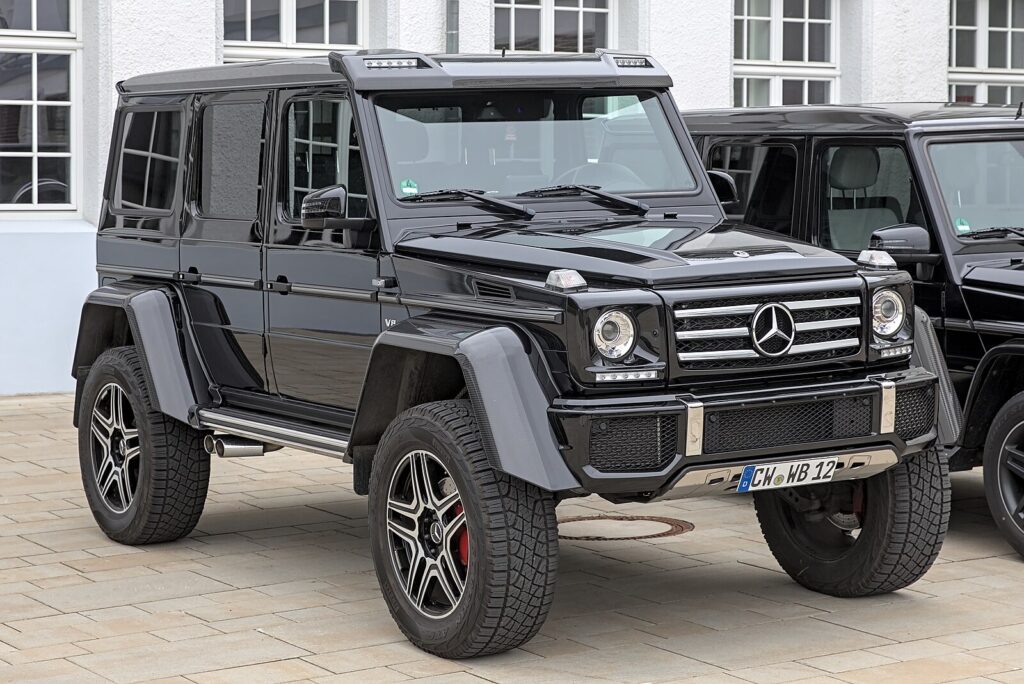
The Mercedes-Benz G-Class, or G-Wagon, is an iconic luxury SUV known for its off-road prowess, but fuel efficiency is one of its weakest points. Averaging between 13-17 mpg, it consumes more fuel than most of its competitors. Its boxy design and powerful engine contribute to its higher fuel consumption. Though the G-Class excels in performance and status, frequent trips to the pump are the price to pay. For those looking to combine luxury with efficiency, other options may be better.
Land Rover Range Rover
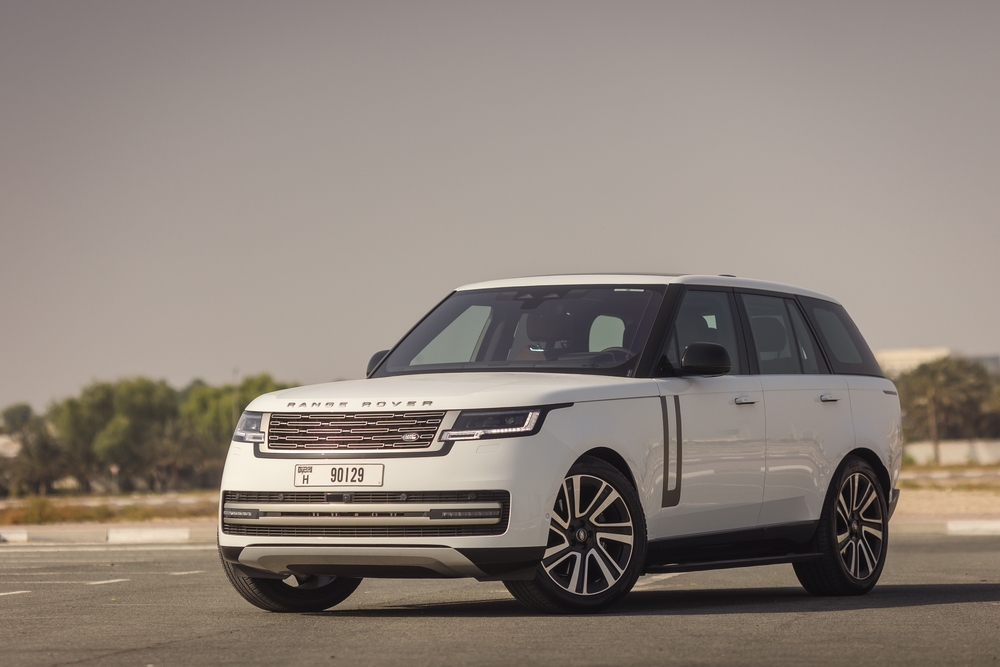
Land Rover’s Range Rover is known for its blend of luxury and off-road ability, but fuel economy is not one of its strengths. With an average of 16-23 mpg, it lags behind other SUVs in its class. The Range Rover’s weight and powerful engine options are to blame for its high fuel consumption. Even with the introduction of hybrid models, fuel savings remain modest. Buyers drawn to its luxury may need to overlook its inefficiency.
Dodge Durango
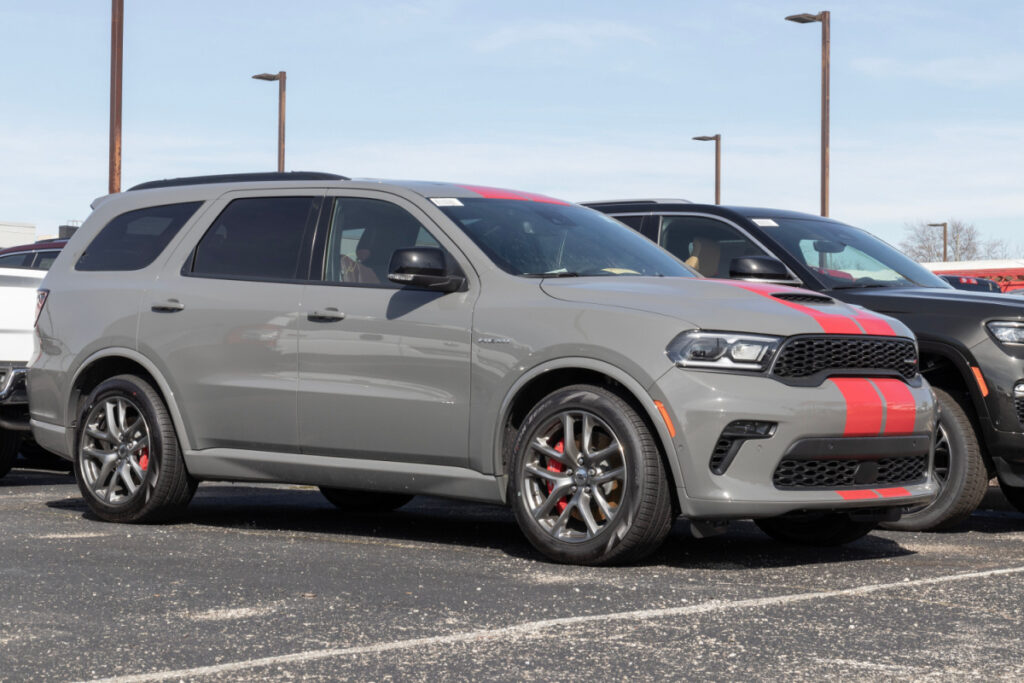
The Dodge Durango is a performance-driven SUV, but that performance comes at the cost of fuel efficiency. With a V8 engine, it averages just 14-22 mpg, which is lower than many midsize SUVs. Its emphasis on power and towing capacity directly impacts its fuel consumption. While the Durango is a capable vehicle for tough tasks, it’s not an ideal choice for those seeking fuel savings. The thirst for fuel makes it less appealing for daily use.
BMW X7
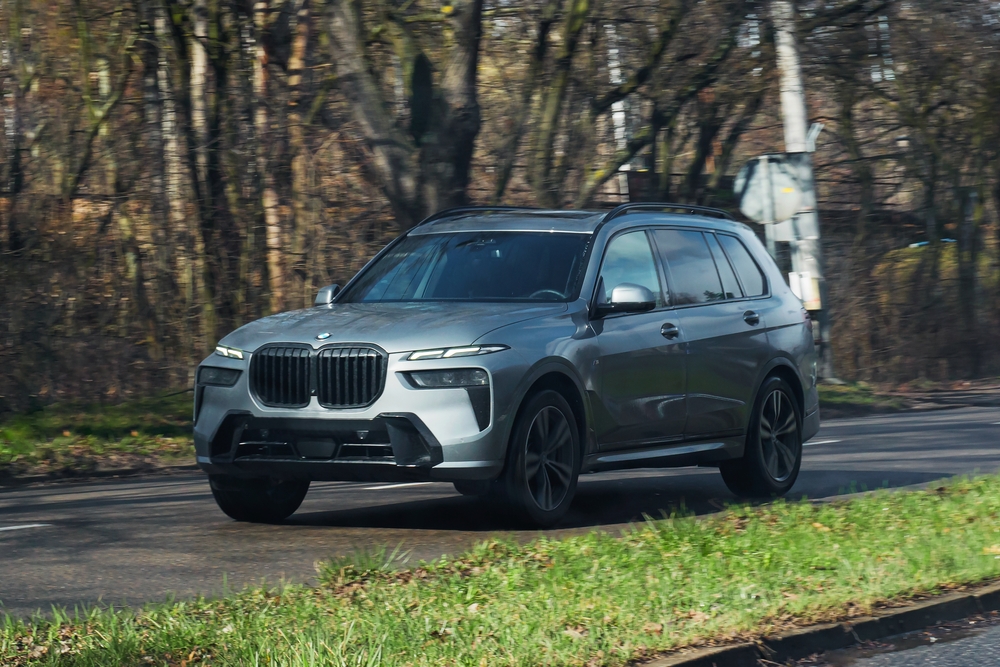
BMW’s X7 impresses with its luxury features and robust performance, but fuel efficiency remains a weak point. Averaging 17-24 mpg, it’s not competitive in the realm of efficient SUVs. The X7’s large frame and powerful engine options, including turbocharged variants, result in higher fuel consumption. Although it delivers a premium driving experience, frequent stops for fuel could become frustrating. For drivers prioritizing fuel savings, this SUV might not be the best match.
Volkswagen Atlas
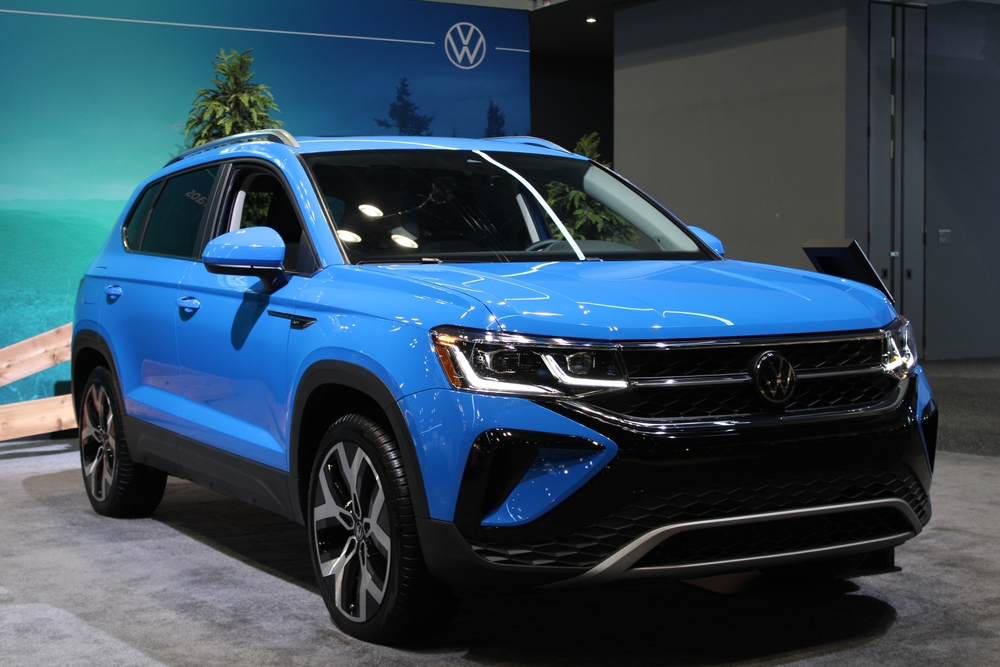
The Volkswagen Atlas is a midsize SUV offering ample space for families, but it falls behind when it comes to fuel efficiency. Averaging around 20-23 mpg, it’s outperformed by more efficient competitors in the same category. Its large size and less advanced engine technology contribute to higher fuel consumption. While the Atlas excels in interior space and versatility, those concerned with gas mileage might be disappointed. Fuel economy may be a deciding factor for budget-conscious families.
Audi Q7
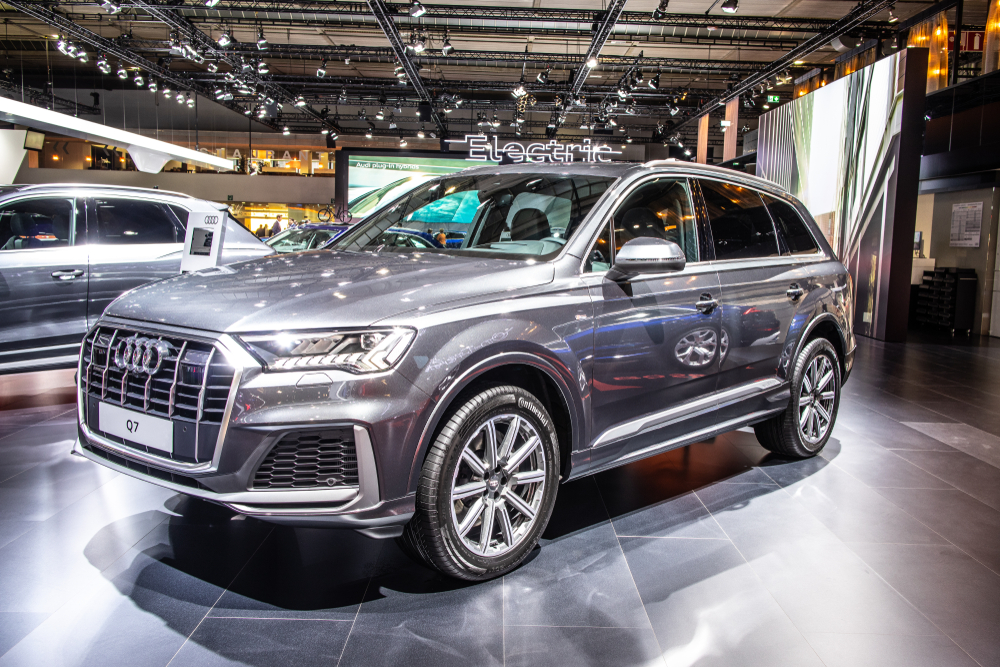
The Audi Q7 combines luxury and performance but struggles to stand out in terms of fuel efficiency. It averages around 18-23 mpg, placing it on the lower end of the efficiency scale for luxury SUVs. Its turbocharged engine, while powerful, contributes to higher fuel consumption. The weight of the vehicle also plays a role in reducing its fuel economy. For drivers who prioritize efficiency, the Q7 may not be the ideal choice.
Subaru Ascent
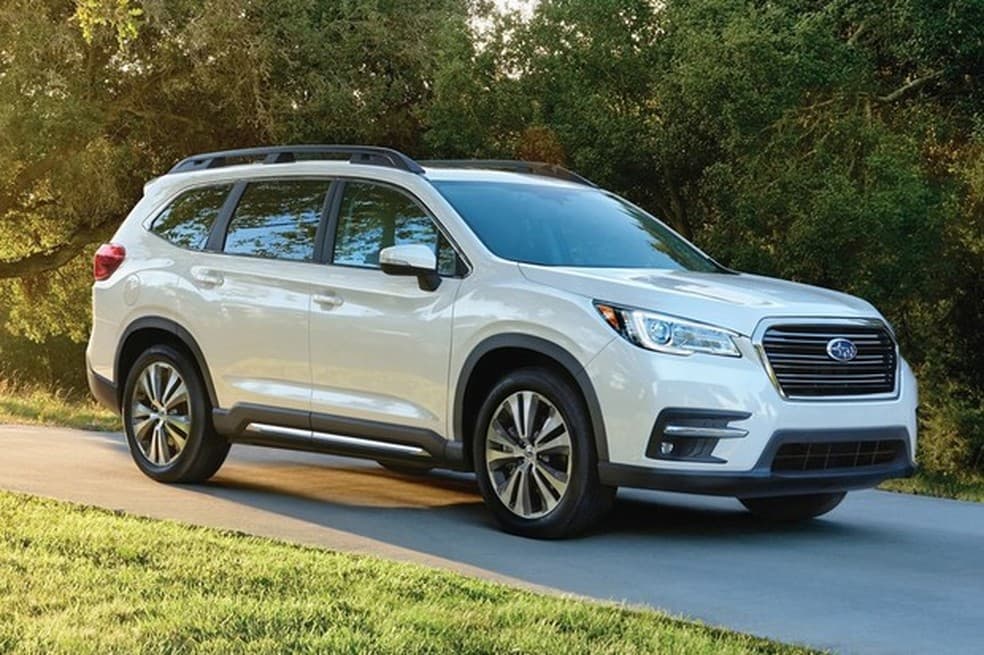
The Subaru Ascent is well-regarded for its safety features and family-friendly design, but it’s not the most fuel-efficient option. Averaging around 21-27 mpg, it doesn’t excel in comparison to other midsize SUVs. The Ascent’s larger frame and all-wheel-drive system contribute to its higher fuel consumption. While it’s a reliable option for families, its fuel economy could be a drawback for drivers aiming to reduce gas expenses.
Maserati Levante
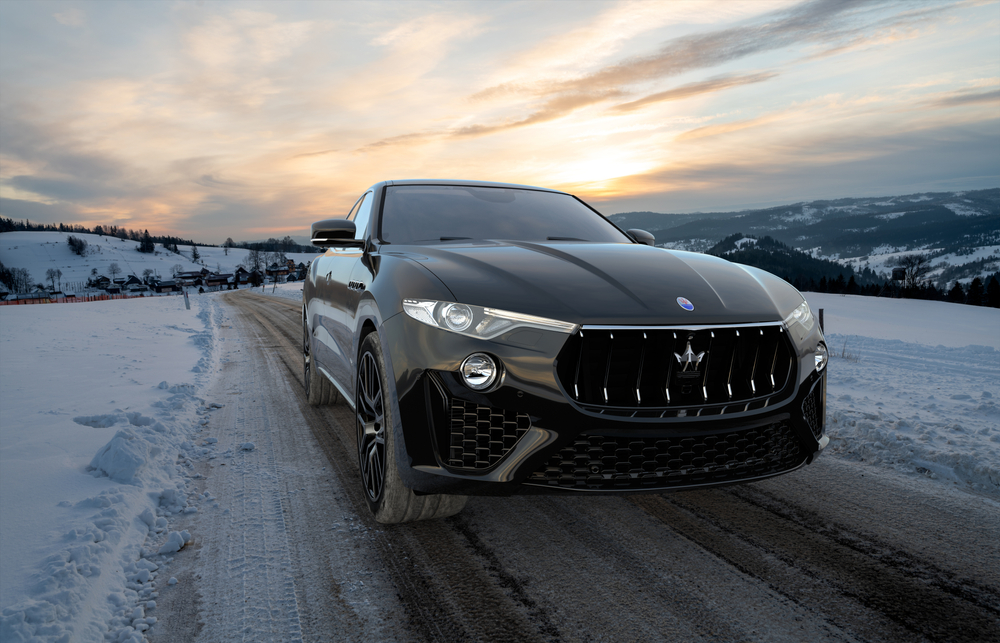
The Maserati Levante delivers thrilling performance but is hindered by its poor fuel economy. Averaging just 15-20 mpg, it guzzles fuel due to its powerful V6 and V8 engine options. The focus on speed and luxury results in higher fuel consumption, making it less practical for those concerned with efficiency. While the Levante offers an exciting driving experience, its frequent fuel stops can become tiresome. The prestige of the Maserati name comes at a significant fuel cost.
Honda Passport
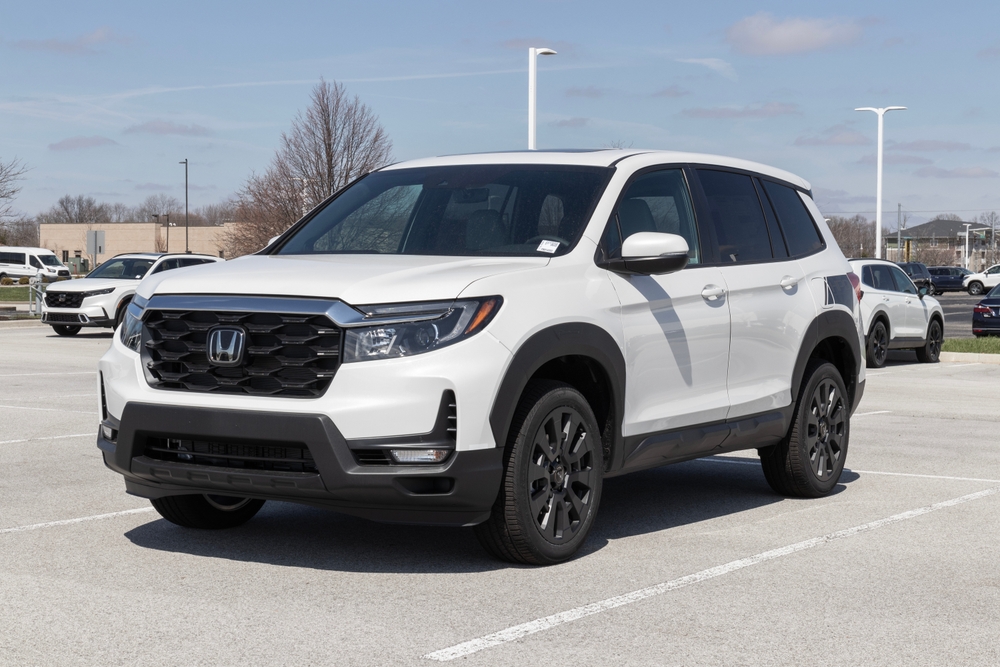
The Honda Passport is known for its rugged off-road capabilities, but it falls short when it comes to fuel efficiency. With an average of 19-25 mpg, it lags behind some of its midsize competitors. The Passport’s V6 engine and robust design contribute to its higher fuel consumption, especially in city driving. Although it’s a reliable and capable SUV, its fuel efficiency may not satisfy drivers looking for savings at the pump.
Kia Telluride

Praised for its spacious interior and features, the Kia Telluride doesn’t perform well in terms of fuel efficiency. Averaging 19-24 mpg, it’s outclassed by some of its rivals in the same category. Its V6 engine and heavier frame are responsible for its lower mileage, particularly in city conditions. Despite being a popular choice for families, Telluride’s fuel economy can be a downside for those focused on saving at the pump. Drivers will have to balance their strong features against the higher fuel consumption.
This article originally appeared in MyCarMakesNoise.
More from MyCarMakesNoise
10 Timeless Boats That Remain Favorites

In the ever-evolving world of boating, certain vessels stand the test of time, becoming enduring favorites among enthusiasts and casual sailors alike. These timeless boats, known for their exceptional craftsmanship, innovative design, and lasting value, continue to captivate and inspire generations of boaters. Read More.
15 Underrated Vintage Motorcycles to Check Out

Venturing into the realm of forgotten vintage motorcycles unveils a treasure trove of two-wheeled gems that have quietly slipped away from the mainstream spotlight. Read More.
15 Ultra-Safe Cars Worth Every Penny
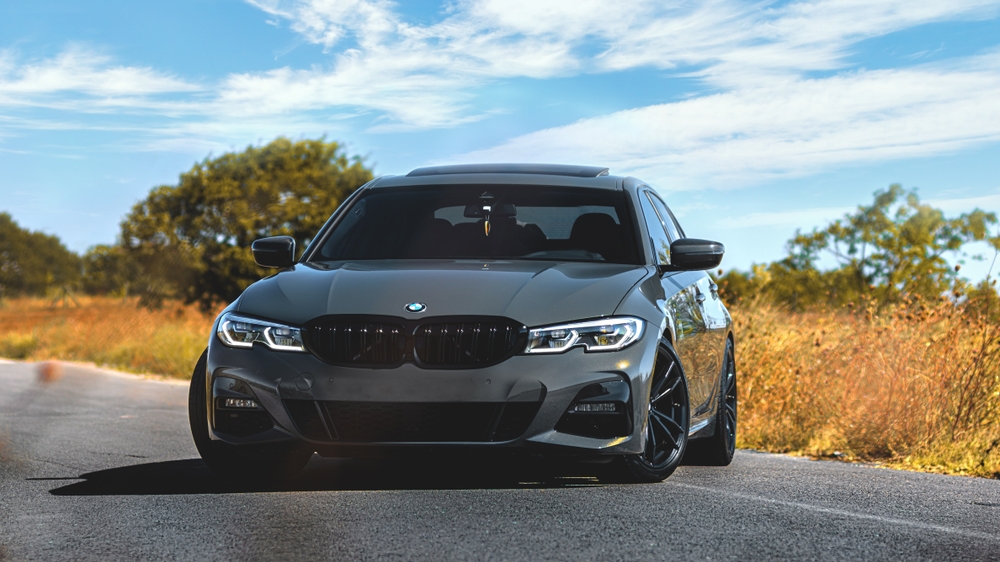
When it comes to choosing a new car, safety is a paramount concern for many drivers. While all vehicles on the market must meet certain safety standards, some go above and beyond, offering advanced features that can significantly enhance occupant protection in the event of an accident. Read More.

